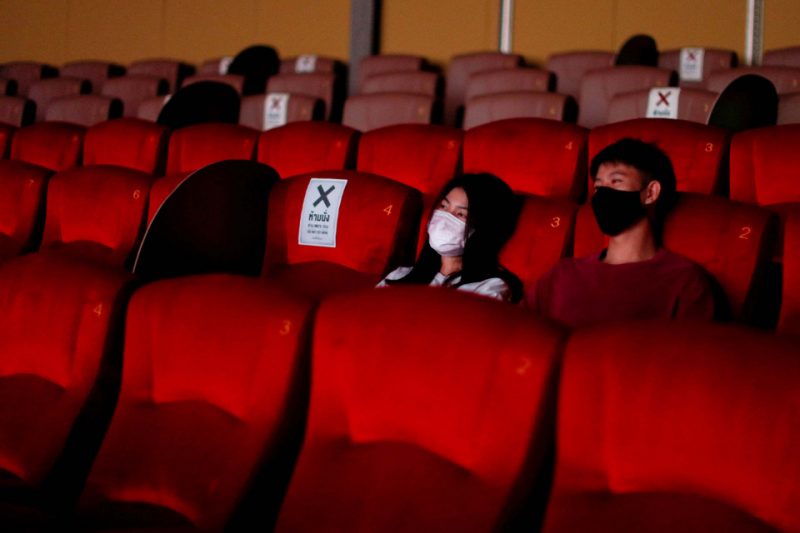The Provincial Government of DKI Jakarta has begun to allow businesses in the tourism sector, such as theatres and sport activities in arenas, to operate during the new normal transition which started on Monday 6th July.
Head of Tourism and Creative Economy Agency, Cucu Ahmad Kurnia, said the government would routinely evaluate cinemas every 14 days after being allowed to open.
“If the spread of COVID-19 decreases, we can continue to extend the opening,” Cucu said.
According to Cucu, even though they have been permitted to open, cinema managers still cannot play films because they still have to look for films that can be shown to viewers. “I expect it will take 14 days to prepare the technicalities,” he said.
The government decided to open cinemas because it saw managers were ready to implement health protocols during this new normal transition. In the initial stage of operation, cinemas are allowed to operate at 50 percent capacity and must install disposable covers on armrests that must be replaced between screenings.
Furthermore, movie theatres are also prohibited from accepting visitors who are under nine years old or elderly people above 60 years. “Later, we will review the health protocol when some have been operating,” he said.
The government has also implemented protocols to prevent the transmission of the COVID-19 in the entertainment sector. The policy was confirmed in a decree from the Head of the Department of Tourism and Creative Economy number 140, of 2020 concerning the extension of the transition in the tourism sector which was signed to take effect from 6th July.
“The integrity pact is imposed on businesses and organisers of activities that are already operating,” states the decree. Business operators are required to fill out, sign, and paste the integrity pact form in a location that is easily found by visitors.
Also Read Koster: Foreign Tourists Expected In Bali 11 September
In addition to having to make an integrity pact, the new normal transition period requires management and owners to work with staff under 45 years old where possible. Managers are advised to make arrangements for alternative placement and working times for employees who are over 45 years old or have a congenital disease to minimise the virus transmission.
Managers of entertainment venues such as theatres are also required to provide masks for visitors and staff. Workers must clean and spray disinfectant in work areas and public facilities that are touched, such as elevator buttons, door handles, banisters, toilet seats, handrails in the sink, and hand dryers every four hours.
“Business operators must provide adequate and easily accessible handwashing facilities for workers and customers. They must choose products and provide instructions for the allocation of hand washing facilities if needed,” noted the decree.
Businesses must provide special trash bins for used items of personal protection (PPE) as well. General health protocols need to be applied at all times, such as wearing masks, washing hands, keeping a minimum distance of one metre, and checking the temperature of all visitors. Employees are also required to use face shields.
Management is asked to implement a COVID-19 risk self-assessment policy to ensure that workers are not likely to catch the virus. If providing food for workers, in order to regulate the nutritional intake of food provided, fruits that contain vitamin C are encourages, as are vitamin C supplements.
Information media must be present to remind workers, business people, consumers, and visitors to follow the provisions of restrictions on physical distancing, hand washing, and mask wearing. During the new normal transition period, management is advised to optimise the design and function of the workspace with good air circulation access to sunlight.
“The manager regulates the working time not being too long (overtime) which will result in workers lacking time to rest, eventually causing the body’s immune system to decrease,” orders the Head of Tourism Office Decree.
Source: Tempo
Image: Ayo Semarang




